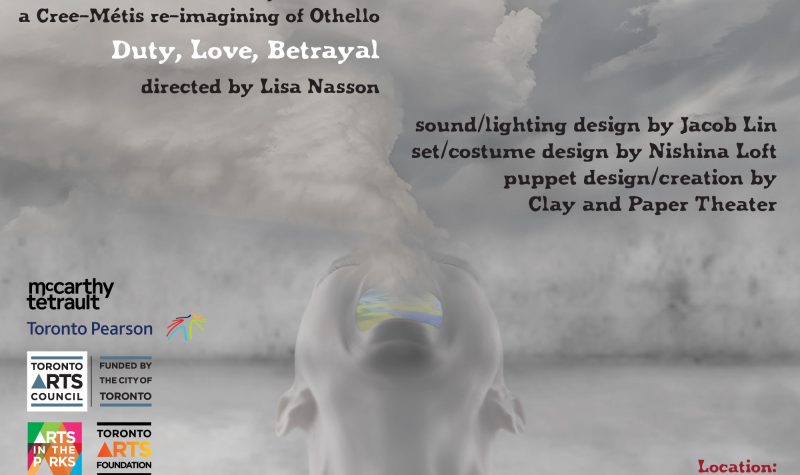Cree playwright PJ Prudat is reimagining Shakespeare’s Othello with an Indigenous lens in her upcoming production Otîhêw.
The production follows the titular character Otîhêw, the adapted version of Othello, a half Indigenous and half Scottish woman who runs a fur trading fort during the "year without a summer." While following the story beats of Othello, Prudat she says that it’s “a loosely inspired reimagining” of the play.
“I've created this world of the fur trade. Creating these very complicated relationships and storylines so I've created a script from a storytelling perspective as well. It's a very different take from what people know of as a fellow, it's a completely original script and storyline I’ve undertaken,” says Prudat.
Prudat has been working in the theatre industry for over 20 years and actively writing plays for the last six: Otîhêw is her latest production. Her drive to tell stories comes from her mother who would tell her stories.
“I think that storytelling, or connecting through telling stories, is our oldest form of communication. And so there's something incredibly magical about simply telling a story,” says Prudat. “There should be a sacred sense of telling stories, and sharing them in a way that brings the community together.”
The creation of the play began at the beginning of the pandemic when Prudat got the “first seed of impulse to write.” She says she chose Othello as her base for the play as race plays a big part in the Shakespeare play. She says she was “interested in looking at it from a mixed-race perspective,” so she could explore concepts of colonialism with an Indigenous view.
“I'm actually seeking a way of mending or finding a way forward with the community. That's been my raison d'etre in terms of trying to create this piece. [I] was trying to find a way to heal and, and decolonize that structure that has brought so many of our own communities harm,” says Prudat.
The Indigenous lens extends past the writing and onto the cast. Jonathon LeRose, who plays the Iago stand-in Hamish, is First Nations and Italian. In Otîhêw, Hamish, like his actor, is also mixed race and faces similar internal conflicts as his actor has in his life.
“I tend to walk in this double world where I live in my life. I've really internalized my indigenous identity, I just feel so connected with it, but I recognize that I look completely external to that,” says LeRose. “With Hamish, it's a similar dual opinion, where he wants to live in the colonized world and run the fort and have the power, have the trading prestige, have the army, but he's an Indigenous man. He will always be an indigenous man. He will not ever be able to be seen the way he wants to be seen. I think that I understand that very intrinsically. Obviously, I've processed that better.”
Iago and by extension Hamish are the central antagonist of their respective plays. Prudat says that Hamish is the closest to the original material. With Hamish she says she struggled the most writing him as she did not want to villainize him while exploring why someone would go to great lengths to harm another person.
“I really wanted to look at the reasons for him, doing the things that he does, in a way that is so harmful, deceitful and ultimately causes himself a great deal of pain and harm. It was really just identifying the reasons that he would go to such lengths and in a way that was also compassionate and not to excuse his behaviour,” says Prudat.
Otîhêw will be running from Aug. 5-20 at Little Avenue Memorial Park.
Listen below for a full interview with Jonthanon LeRose:


